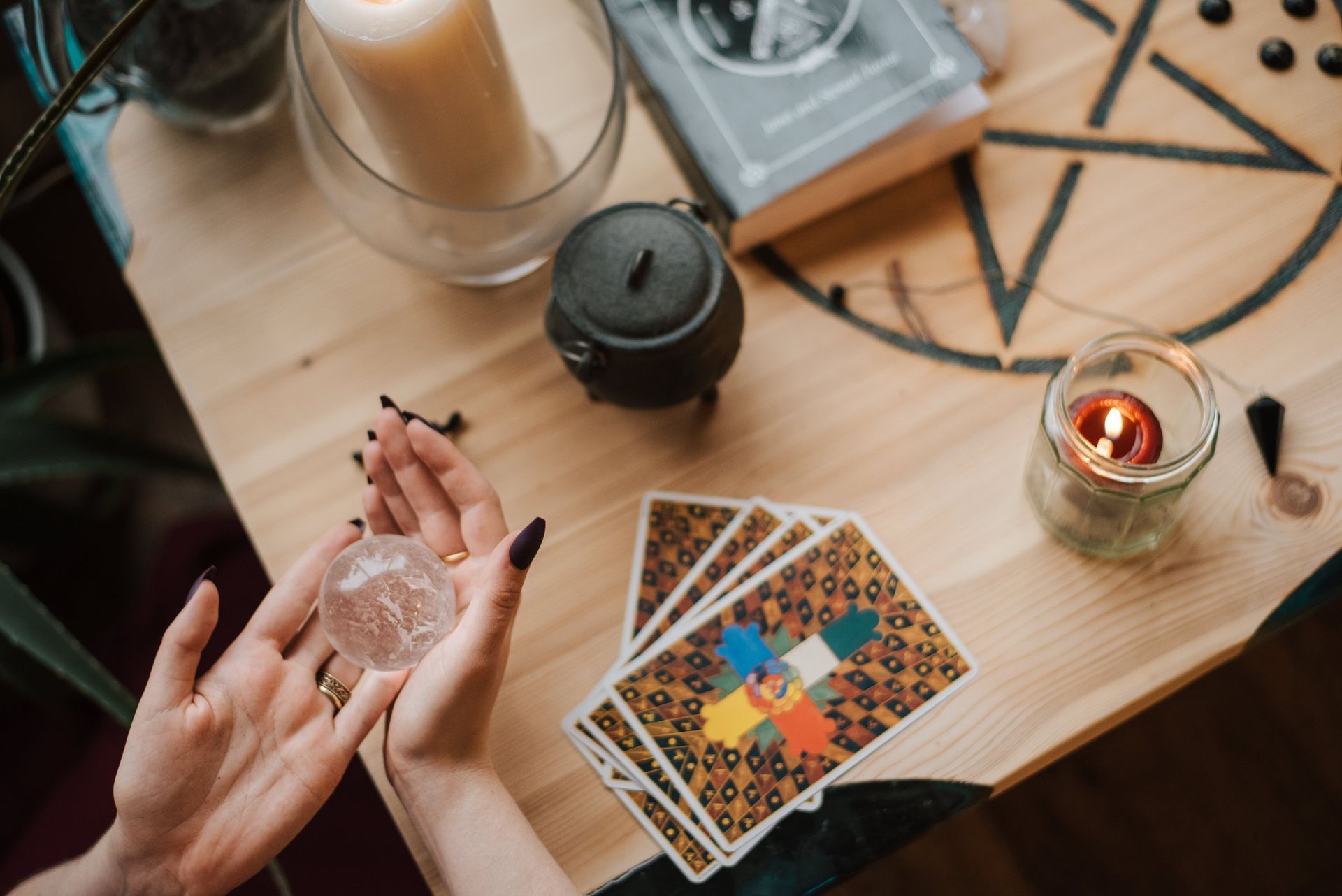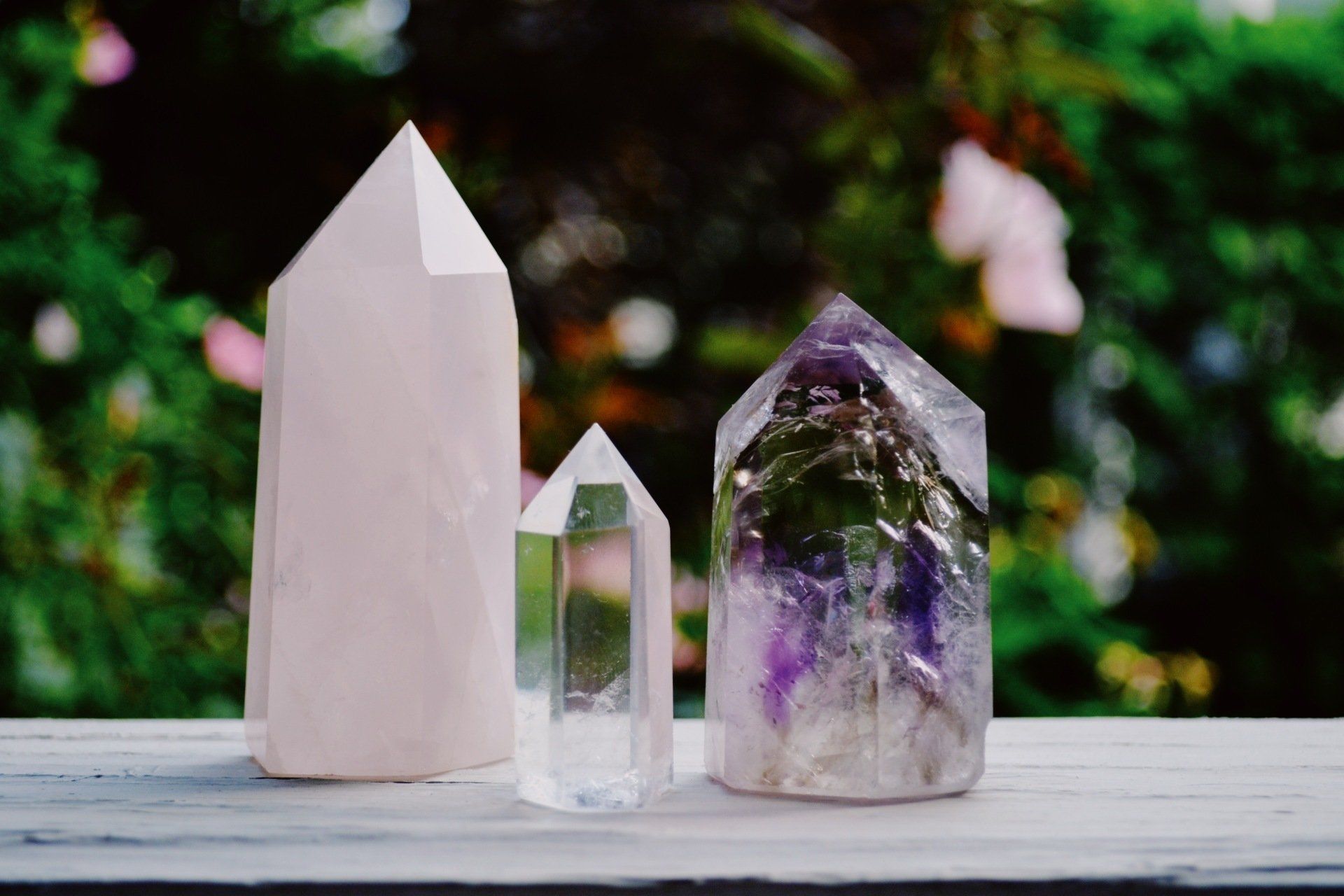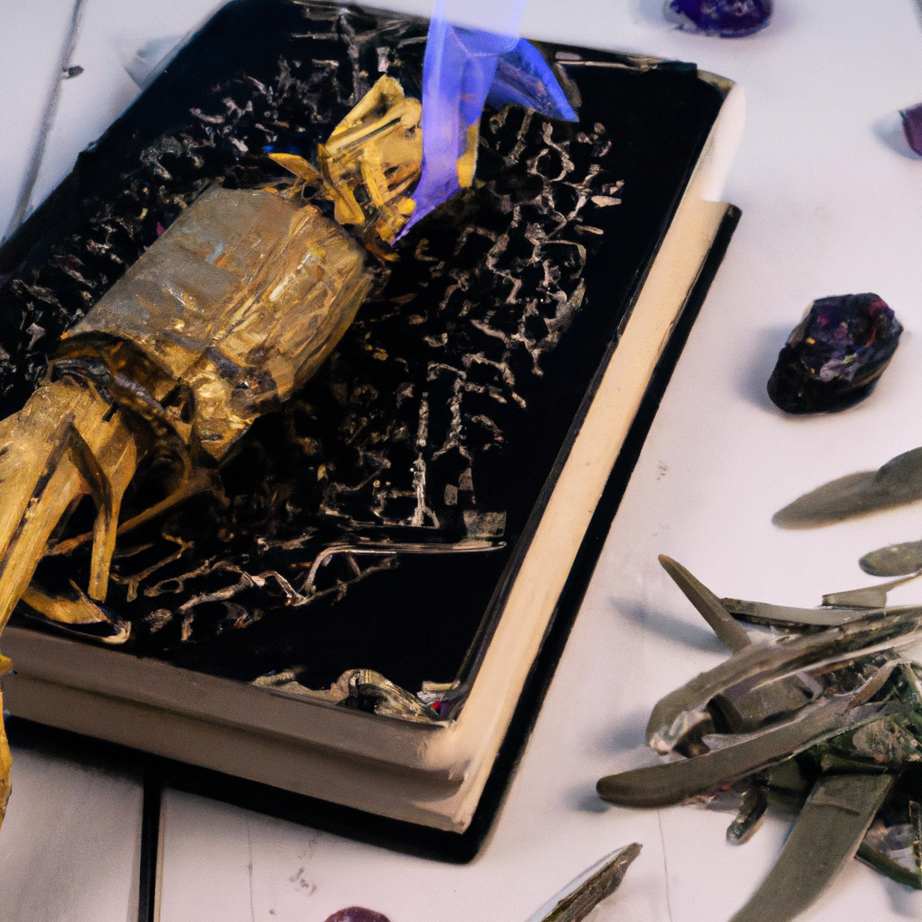Unlocking the Mysteries of Your Subconscious: Dream Interpretation and Keeping a Dream Journal
Ever woken up after a wild dream, feeling like you just watched a cryptic movie starring—you? Dreams are like personalized films, created by our subconscious, and each one holds clues to who we are, what we’re feeling, and what we need to learn. But cracking the dream code can sometimes feel like solving the Da Vinci Code—only instead of ancient symbols, you’re working with flying giraffes or talking pizzas.
The secret to mastering your dream world? A dream journal and a little practice in dream interpretation.

Dream Interpretation 101: Don’t Just Interpret the Dream, Interpret You
Before we get into the nuts and bolts of dream interpretation, let's talk about why it matters. Dreaming is more than just your brain going haywire while you sleep. As Edgar Cayce—one of the most renowned psychics and dream interpreters—famously said, "Interpret the dreamer, not just the dream." That’s right! It’s not just about decoding the random string of symbols in your dream; it’s about figuring out how those symbols relate to you and what’s going on in your life. So think of dreams like a compass pointing inward, showing you the way to self-discovery, personal growth, and sometimes even emotional healing. Every character, every strange scenario, and every bizarre twist is connected to your psyche, offering a new perspective or guiding you toward balance.
Dreams as a Balancing Act: Your Psyche’s Way of Keeping You in Check
Think of your psyche as a dynamic, constantly shifting puzzle. Dreams are your brain’s way of saying, "Hey, let’s bring some balance back into this." So, when your conscious life is out of whack—maybe work stress is through the roof or you’ve been ignoring something important—your dreams swoop in to help course-correct.
Keeping this balance theory in mind is like having a cheat code for dream interpretation. Instead of getting lost in the wackiness of a dream (what was up with that dancing cactus?), you can focus on the message behind it. What part of your life needs a little rebalancing? What have you been avoiding?
The Power of a Dream Journal: Why One Dream Isn’t Enough
You wouldn’t judge a TV show after watching just one episode, right? Same thing goes for dreams. If you really want to get the most out of them, you’ve got to look at the big picture. That’s where a dream journal comes in.
By tracking your dreams over time, patterns start to emerge. Maybe that recurring symbol or person is your subconscious yelling at you to pay attention. Or maybe you start seeing progress, like finally confronting that fear that’s been chasing you through your dreams for months. Jotting down your dreams right when you wake up is key because, let’s be real, by lunch, the details are fuzzy at best (unless it was one of those dreams). Plus, having a written record means you can look back later with fresh eyes—and who knows, a seemingly insignificant dream could unlock a big realization later on.
The Dream Structure: Breaking It Down Like a Movie
Dreams may feel random, but most follow a structure similar to movies or plays. Once you know this, you can start making sense of the madness. Here’s a breakdown:
1. Location: Where’s the dream happening? It might be somewhere familiar like your childhood home, or it could be some surreal, otherworldly place. Either way, ask yourself, "How do I feel about this place?" It often relates to a significant part of your life or past.
2. Characters: Who showed up? It’s easy to get caught up in wondering why your high school crush is suddenly there, but focus more on what that person represents. Every character in your dream is often a part of you. Even antagonists could reflect qualities you don’t like in yourself or something you’re struggling with.
3. Plot: Every dream has a plotline—even if it’s not always clear. There’s usually a setup, a crisis point, and sometimes, a resolution (though some dreams leave that part up to you). The plot can clue you into what’s happening in your subconscious. Is something unresolved? Is there a crisis in your life you need to face?
The Balance Between Literal and Symbolic Dreams
Sometimes, dreams are literal. If you dream about being late for work, guess what? You might just be stressed about work. Simple as that. But most of the time, your dreams are playing hard to get. They love using symbols to hide deeper meanings, forcing you to really dig in. And those symbols? They’re tailored specifically to you. So while a spider might mean fear to one person, it could symbolize creativity or patience for someone else. The trick is getting to know your own subconscious language.
Symbolism: Decoding the Secret Messages
Think of your subconscious mind as a mischievous artist who loves to communicate in metaphors and symbols. Why so cryptic? Because your conscious mind, the part of you that’s rational and practical, would likely reject or suppress these messages if they were too obvious. So instead, your subconscious speaks in code.
For example:
- Water often symbolizes emotions, but is it a calm ocean or a raging storm?
- Flying might indicate freedom or ambition, or maybe it’s about escaping from something in real life.
- Falling often points to feelings of insecurity or loss of control.
The trick is to notice patterns. If every time you dream about water, you’re also feeling overwhelmed, that might be a clue your subconscious is using water to symbolize those emotions.
Dream Dictionaries: Helpful or Not?
Dream dictionaries can be a starting point, especially when you’re just getting into dream interpretation. They offer common meanings for recurring symbols, like snakes or falling teeth. But remember: You have your own personal dream dictionary that evolves over time. What a cat symbolized for you five years ago might not hold the same meaning today. So, while those dream dictionaries are helpful, they aren’t gospel. They’re more like a springboard to dive into your own interpretations.
The Lifelong Adventure of Dream Interpretation
Interpreting dreams is like setting off on a lifelong treasure hunt. You’ll never fully "solve" them, but the more you learn, the more fascinating and rewarding the journey becomes. Your dreams are unique to you, and as you change, so do the symbols and stories they present. Start keeping a dream journal, and make a habit of reflecting on your dreams regularly. Over time, you’ll not only gain insight into your subconscious but also into how your waking life is affecting your inner world. Each dream you unravel will bring you one step closer to a deeper understanding of yourself.
Final Thoughts: Your Subconscious Is Calling, Are You Listening?
At the end of the day, dream interpretation isn’t about cracking some mystical code or solving a puzzle for the sake of it. It’s about understanding yourself on a deeper level. Your dreams are your subconscious mind’s way of communicating with you, and keeping a dream journal is like giving yourself a direct line to those hidden thoughts and feelings.
So, grab a notebook and start journaling those dreams. (I suggest the one I designed; link below!) You never know what your subconscious might be trying to tell you—and trust me, it’s always worth listening.
P.S. Want to share your thoughts on dreams? Don't be shy! Share in the comments below what you are doing to interpret your dreams or comment on my social media at: https://www.facebook.com/AMusingMystic or https://www.instagram.com/amusingmystic/
For tools to help you learn about dreams, check out my Amazon Storefront: https://amzn.to/3Lib2O8 or my dream interpretation guide here:
https://stan.store/AMusingMystic
*As an Amazon Influencer, I earn commissions from items you purchase through my storefront. Thank you for supporting my small business!*
More Mystic inspirations



